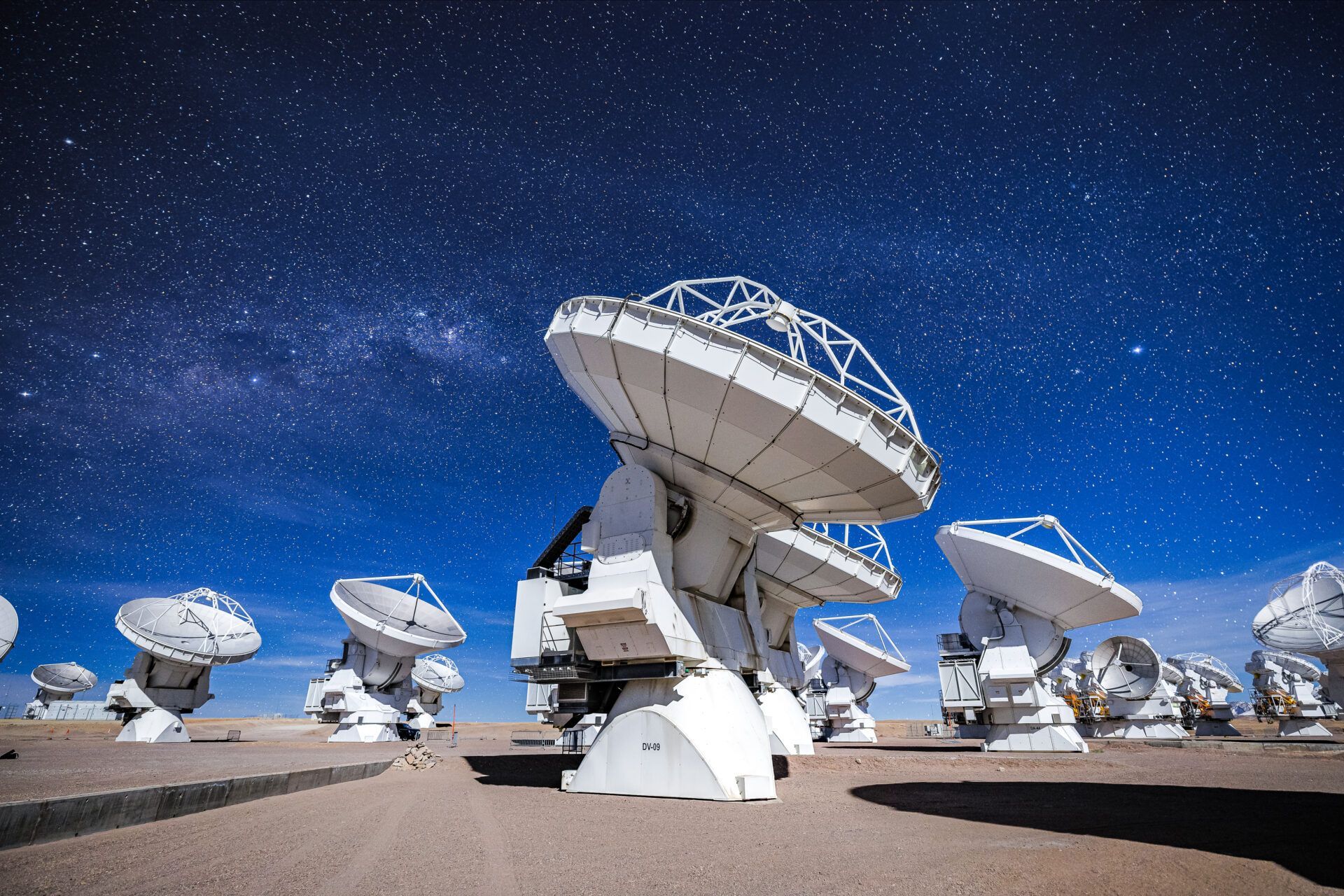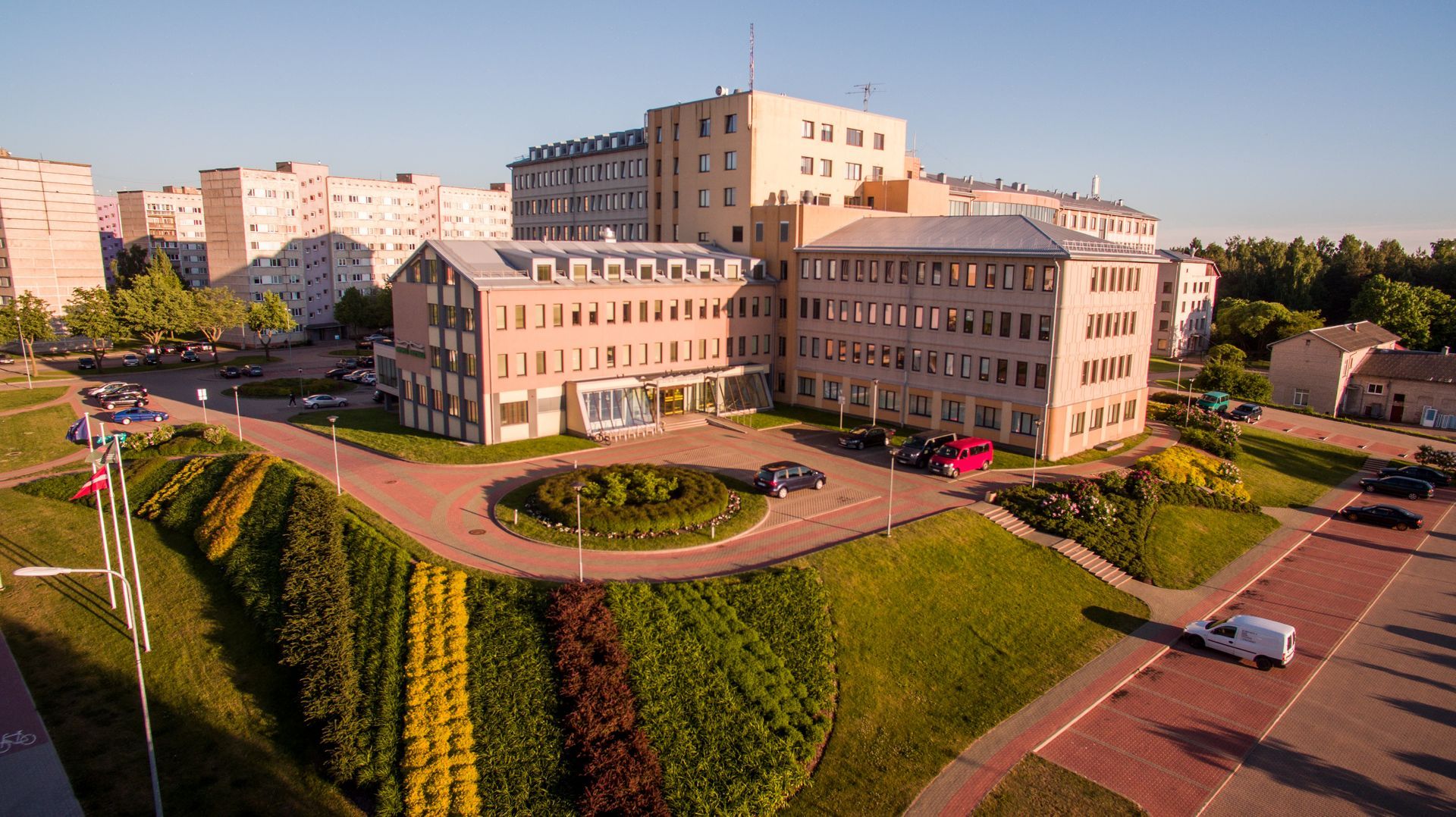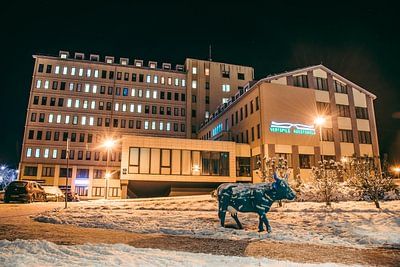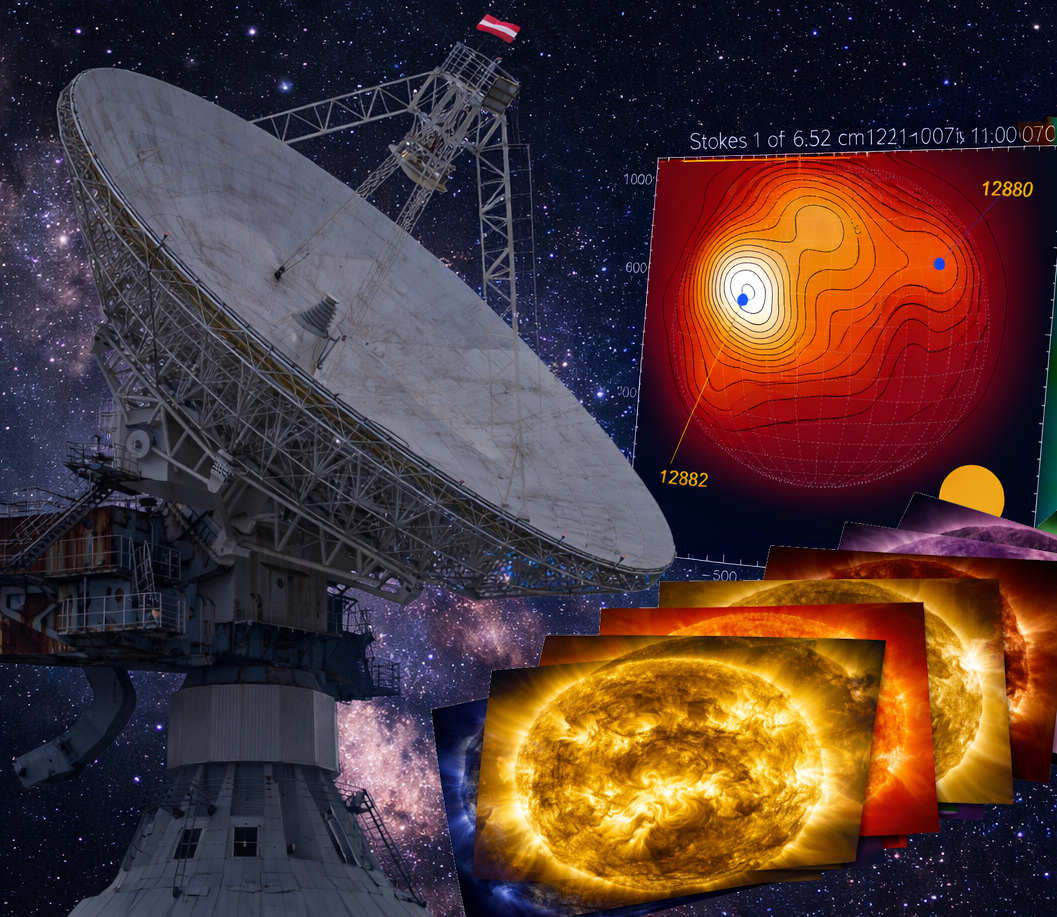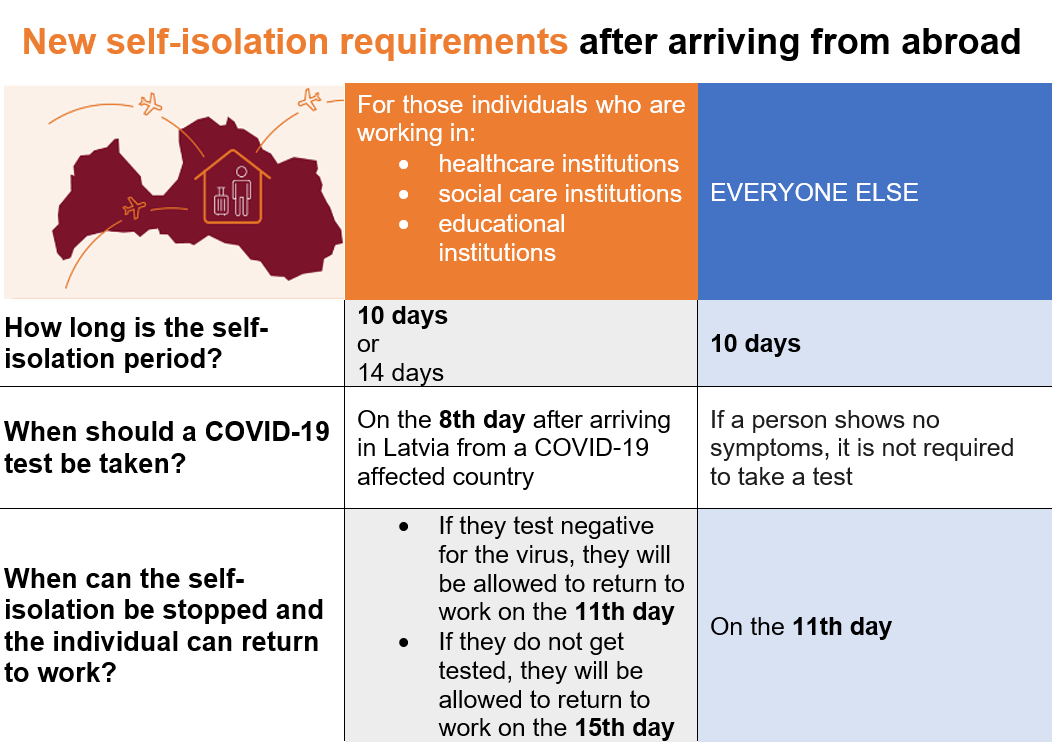Self-isolation requirements for Ventspils University of Applied Sciences students
The Autumn semester has begun for the students and staff of Ventspils University of Applied Sciences. However, Covid-19 has forced the Latvian government and Ventspils University of Applied Sciences to make some adjustments and introduce several safety measures to keep us all safe and allow to enjoy studies, the city and Latvia as much as possible:
- All students who come to Latvia from or through a country included
in a red list
have to stay in a self-isolation for 10 days (the list is updated every Friday and PDF files can be found here:
https://www.spkc.gov.lv/lv/valstu-saslimstibas-raditaji-ar-covid-19-0 )
From 17.09. the self-isolation requirement for those individuals who are arriving from Covid-19 affected countries is changed from 14 days to 10 days.
Keep in mind that those individuals who are working (studying) in:
healthcare institutions
social care institutions
educational institutions
and who are in close contact with other people, on the eight day after arriving in Latvia will have to take a Covid-19 test.
If they test negative for the virus, they will be allowed to return to work on the eleventh day after returning to Latvia.
If they refuse to be tested, they will have to self-isolate for fourteen days and they will be allowed to return to work on the fifteenth day after returning to Latvia.for more information:
www.spkc.gov.lv, www.covid19.gov.lv
2. Additional requirement for safety purposes to all our students and staff − not later than 48 hours after or before the end of self-isolation (and before you start to attend practical lessons in person) all students and staff who have been in a self-isolation are required to make a Covid-19 test. For foreign citizens it will cost around 60 EUR (depends on a laboratory you do it)
Please note that a negative Covid-19 test does not cancel self-isolation requirement. You still have to self-isolate for 14 days, even if you've taken the Covid-19 test.
Where and how can one do the Covid-19 test?
1) Central Laboratory Analysis Transfer Point on Lielā street 7, Ventspils. You must schedule an appointment by calling 8303 (most likely need to put +371 in front of it) or by sending an e-mail to analizes@laboratorija.lv (this is actually faster than calling)
2) E. Gulbis laboratory analysis transfer point (Sofijas Street 2, Ventspils). Analyzes can be submitted by prior appointment by calling +371 67801112.
If you do the test at the Central Laboratory, please note that you need to make an online transfer of 58 EUR to this bank account (according to information found here: https://www.laboratorija.lv/covid-19.html):
Name: SIA ”Centrālā laboratorija”
Address: Šarlotes ielā 1b, Rīga, LV-1001
Reg. no.: 40003210801
Name of the bank: SEB banka
Swift code: UNLALV2X
Iban: LV89UNLA0050024286885
In payment order you need to show:
Name Surname
Date of birth
COVID-19
Cash payments are not available!
You will need to go to Lielā street 7 where they have a special tent. You will need to present payment order and your ID (passport or ID card from your country).
3. After arrival in Latvia you will need to take a public transport. Unfortunately, VUAS cannot assure transport from the Airport to Ventspils. You all need to wear a face mask and try to avoid people as much as possible (keep 2m distance if possible). The same is suggested to students who come from a white list country. Another possibility is to rent a car. If you are interested in this option, please contact VUAS International office.
Should you arrive in Riga later in the night and do not have a possibility to come to Ventspils the same day,
try to shorten your layover in Riga as much as possible and take as little of public transportation as possible.
HERE
is information as to how to get to Ventspils from Riga airport.
4. Those students who are in self-isolation in Latvia or still in their home countries waiting for visa to enter Latvia. Please note that being at home or in a self-isolation will not be a reason to miss/skip lessons.
5. All incoming students must provide VUAS International Office with their arrival information: arrival date, flight information and keep your bus and/or taxi tickets (just in case).
Looking at this from the bright side – Ventspils is a great place to self-isolate as we are surrounded by green forests and the dormitory is located within a 10-minute walk from the Baltic sea. Self-isolation does not mean being stuck within fours walls, you are allowed to go out and enjoy the fresh air, but making sure you stay away from other people as much as possible.
Better safe than sorry is ever so true now. We wish for all of us to be safe (including you) and hope for your understanding. We expect our students to be responsible and take this seriously. Follow the regulations otherwise you might be asked to leave Latvia.
Stop the virus with your phone! Consider downloading and using this
APP “Apturi Covid” (Stop Covid). This app is the fastest way to find out if you have been exposed to COVID-19.
Should you have any questions please do not hesitate to
contact us.
Share on other platforms
Other news


